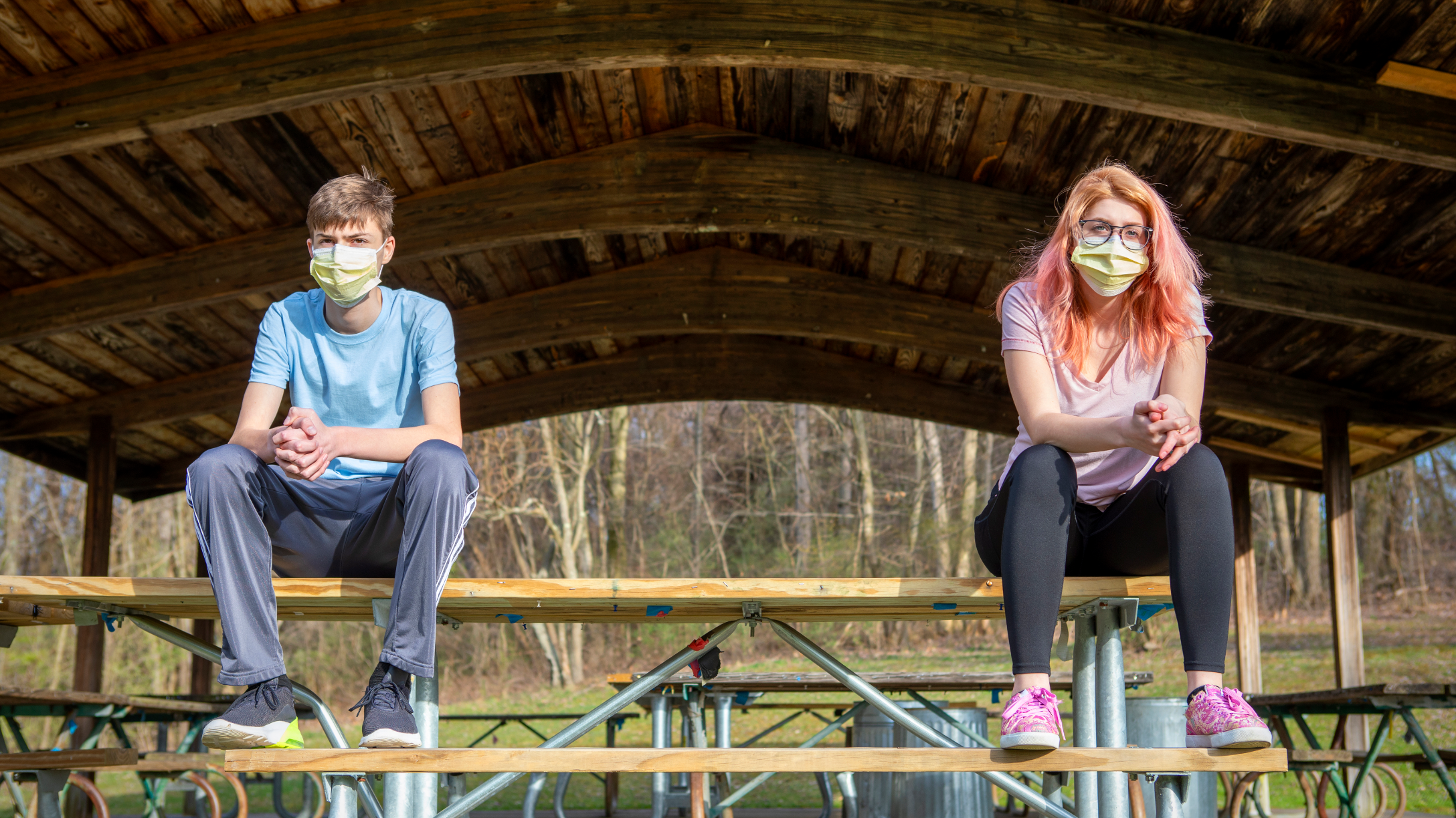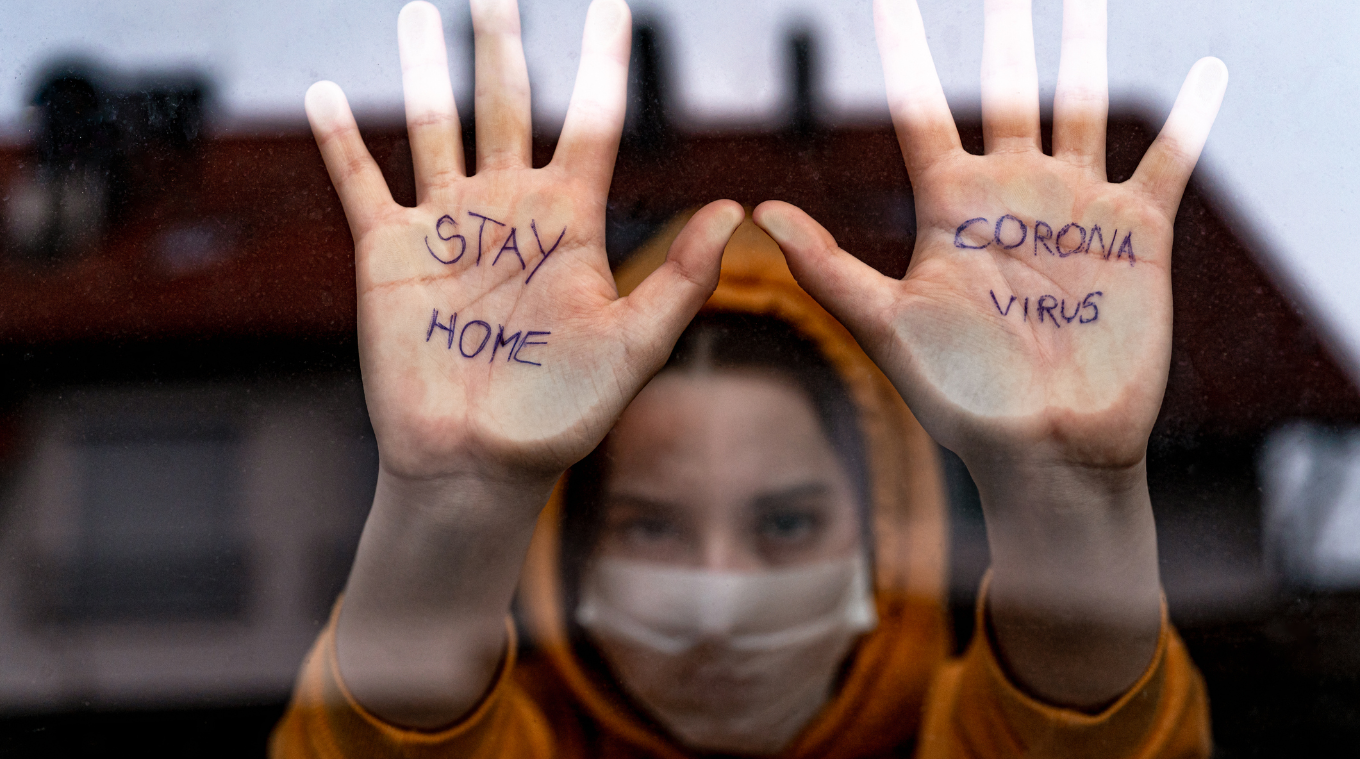
In this article
Kids experience many milestones during their teenage years like learning to drive, going to prom, and graduating high school. In this time of social distancing, teenagers may feel like they’re missing out on so much. As parents, how can we help our teens get through it all?
It’s important to acknowledge that these are unprecedented times. What teens are going through is really hard, Santa Monica clinical psychologist Courtney Karp told Mom.com.
“There’s a lot of grief that everyone is experiencing right now,” she said. Especially for teens that are planning for their next steps after high school. “There’s no doubt about it that they’re suffering and going through a significant loss.”
Missed milestones

Oregon parent Lara Morais feels for her daughter, a high school freshman, and her son, who is missing out on his senior year. He was looking forward to going to the prom and Morais was really looking forward to seeing him put on a cap and gown to receive his diploma at his high school graduation. She ordered a sign to put on her front lawn to commemorate his graduation.
“He’s really hoping he can go to school in the fall,” she told Mom.com. He’s scheduled to go to college where he was recruited to play soccer. “He’s worked so hard.”
The milestones we think of our kids experiencing, and that many of us had, are going to look different, Karp cautioned. We don’t know when things will get back to normal and we don’t want to pretend like we do. The reality is that there are new developments every day.
“Something has, I think, permanently shifted in the way we’re going to socialize and interact with people. It’s going to be a process into reintegrating,” Karp said. “Prom may look very different for a while.”
Until then, teens can get creative. John Krasinski hosted a virtual prom on his online show Some Good News and Tik Tok is hosting Prom Week from Tuesday, April 21, to Saturday, April 25. Teens across the country are throwing their own online parties.
Social media and video communication

Teens all across the country have been chatting with friends through their phone and on social media. The American Academy of Pediatrics recommends that teens stay safely connected to friends by social distancing through phone, text, video chat, or social media while also making sure that they’re not sharing too much personal information online, according to its website, Heathychildren.org.
Chatting with friends online is a good way for them to stay connected, but there should still be limits, Karp said.
Rules of social distancing

As stay-at-home orders continue and schools remain closed, teens may start to resist. Karp advised that the way to get kids to practice good social distancing is to model that behavior for your kids and have a conversation about what is expected.
“There’s always going to the be outliers that test the limits, but my guess is that those kids were testing the limits long before this pandemic,” she said.
Let your teenager know that you have their best interest in mind and the goal is to keep them safe and that you understand that they’re going through a loss of experience and independence.
“I think if they’re understood in that way it can open up a bigger conversation around staying safe right now,” Karp said. Parents can explain to their teen that it’s their job to keep their kids safe. “And to really highlight the importance of that. I think they’ll going to have a much better opportunity to be heard as parents and the child feels heard about how hard it has been.”
If teenagers give parents pushback, here are a few tips to encourage social distancing from Harvard Health.
- Educate teens about the COVID-19 pandemic using reliable sources, like the Centers for Disease Control website.
- If they won’t listen to you, find someone they will listen to — like another trusted adult or your family doctor.
- Help them to connect with people online, if they aren’t already.
- Help them find things to do.
- Talk to their friends’ parents and make sure that everyone is on the same page.
- Set rules and enforce them.
Morais senses that it’s as hard for parents as it is for their teenagers. “I just worry how they’re all going to come out of this.”







